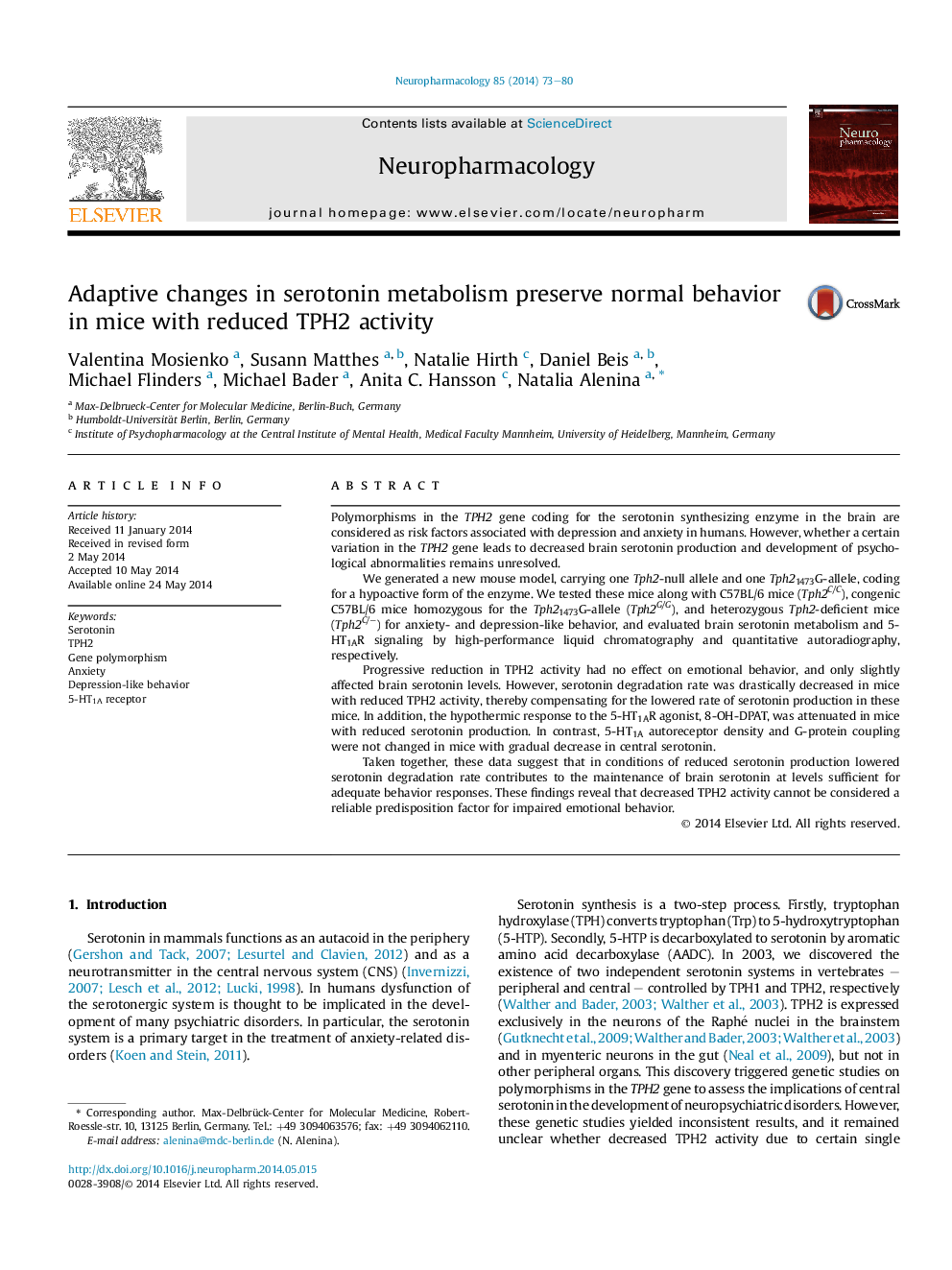| کد مقاله | کد نشریه | سال انتشار | مقاله انگلیسی | نسخه تمام متن |
|---|---|---|---|---|
| 5814388 | 1556629 | 2014 | 8 صفحه PDF | دانلود رایگان |

- We described a novel mouse model with drastically reduced TPH2 activity.
- Surprisingly the brain serotonin levels in these mice are only mildly affected.
- These mice do not show any alterations in anxiety- and depression-like behavior.
- Life-long decrease in TPH2 activity evoked adaptations in the serotonergic system.
- These adaptation mechanisms compensate for the reduced serotonin production.
Polymorphisms in the TPH2 gene coding for the serotonin synthesizing enzyme in the brain are considered as risk factors associated with depression and anxiety in humans. However, whether a certain variation in the TPH2 gene leads to decreased brain serotonin production and development of psychological abnormalities remains unresolved.We generated a new mouse model, carrying one Tph2-null allele and one Tph21473G-allele, coding for a hypoactive form of the enzyme. We tested these mice along with C57BL/6 mice (Tph2C/C), congenic C57BL/6 mice homozygous for the Tph21473G-allele (Tph2G/G), and heterozygous Tph2-deficient mice (Tph2C/â) for anxiety- and depression-like behavior, and evaluated brain serotonin metabolism and 5-HT1AR signaling by high-performance liquid chromatography and quantitative autoradiography, respectively.Progressive reduction in TPH2 activity had no effect on emotional behavior, and only slightly affected brain serotonin levels. However, serotonin degradation rate was drastically decreased in mice with reduced TPH2 activity, thereby compensating for the lowered rate of serotonin production in these mice. In addition, the hypothermic response to the 5-HT1AR agonist, 8-OH-DPAT, was attenuated in mice with reduced serotonin production. In contrast, 5-HT1A autoreceptor density and G-protein coupling were not changed in mice with gradual decrease in central serotonin.Taken together, these data suggest that in conditions of reduced serotonin production lowered serotonin degradation rate contributes to the maintenance of brain serotonin at levels sufficient for adequate behavior responses. These findings reveal that decreased TPH2 activity cannot be considered a reliable predisposition factor for impaired emotional behavior.
Journal: Neuropharmacology - Volume 85, October 2014, Pages 73-80